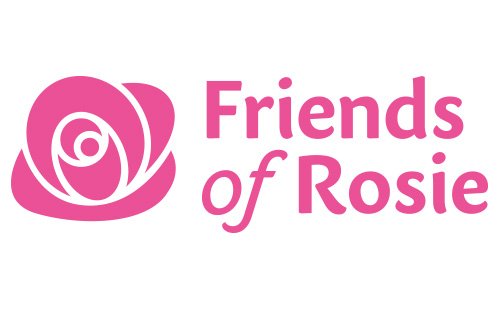Friends of Rosie has joined forces with another like-minded charity, Megan’s Rose of Hope, to fund research into the use of a revolutionary new blood test to diagnose Ewing Sarcoma, a rare type of bone cancer. In 1 in 4 children or young people with Ewing Sarcoma there is little chance of survival because the cancer has already spread by the time it is detected with present methods.
We have jointly awarded £70,000 for a second year of research looking for a reliable diagnostic blood test. The first year’s research was also funded by Friends of Rosie in partnership with another children’s cancer charity, The Bradley Lowery Foundation.
The research is taking place at the Manchester Cancer Research Centre and The Christie Hospital in Manchester. The research team includes specialised biomarker researchers, Professor Caroline Dive and Dr Dominic Rothwell, with Ewing Sarcoma focussed clinician, Dr Martin McCabe.
 Says Friends of Rosie Trustee and Ewing Sarcoma survivor, Mahesh Vara, “This is such an exciting research project, and one close to my heart. It potentially provides an invaluable pathway to early diagnosis, and on-going monitoring, whilst avoiding the trauma of invasive biopsies.”
Says Friends of Rosie Trustee and Ewing Sarcoma survivor, Mahesh Vara, “This is such an exciting research project, and one close to my heart. It potentially provides an invaluable pathway to early diagnosis, and on-going monitoring, whilst avoiding the trauma of invasive biopsies.”
 Adds Paige Morley, Charity Chair at Megan’s Rose of Hope, “We are incredibly honoured and grateful for the opportunity to be a part of this research project with Friends of Rosie. Megan’s wish was to help others who have been diagnosed with cancer and we know that Megan would be so proud to be a part of making a change. Our thanks go to all those who have raised and donated funds to support this project. We are excited to see what comes from the research and we hope it can make a difference to young people with Ewing sarcoma in the future.”
Adds Paige Morley, Charity Chair at Megan’s Rose of Hope, “We are incredibly honoured and grateful for the opportunity to be a part of this research project with Friends of Rosie. Megan’s wish was to help others who have been diagnosed with cancer and we know that Megan would be so proud to be a part of making a change. Our thanks go to all those who have raised and donated funds to support this project. We are excited to see what comes from the research and we hope it can make a difference to young people with Ewing sarcoma in the future.”
About Ewing Sarcoma
Ewing Sarcoma occurs in around 100 people per year in England. It peaks during adolescence and early adulthood and is the second most common bone cancer of children and young adults.
The survival rate of children and young people with Ewing Sarcoma has changed little in the last 40 years, despite multiple clinical trials. Major factors resulting in poor survival and lack of progress are largely due to early symptoms being non-specific, therefore tumours are frequently large and inoperable at the time of diagnosis. At present, in one in four patients, the disease has already spread to other parts of the body by the time it is diagnosed.
Blood test diagnosis
This research project is looking at the development of a reliable diagnostic blood test to diagnose people earlier with smaller tumours before they have spread. Currently, patients rely on invasive, often painful, tumour biopsies which provide only limited samples and are difficult and expensive. A blood test could instead identify quickly whether treatment is working rather than spending months giving ineffective chemotherapy. It would also be a reliable and less invasive way to monitor for disease relapse and enable earlier intervention.
About Megan’s Rose of Hope
 At the age of 18, Megan was diagnosed with stage 4 Ewing Sarcoma after two years of being unwell and numerous visits to doctors and health care facilities. Megan underwent the most brutal chemotherapy the NHS can offer, as well as an eight-hour surgery, in which she lost one of her kidneys and her tumour was removed. Her chemo was so brutal her body struggled to recover, and she required blood transfusions, several rounds of antibiotics and emergency admissions.
At the age of 18, Megan was diagnosed with stage 4 Ewing Sarcoma after two years of being unwell and numerous visits to doctors and health care facilities. Megan underwent the most brutal chemotherapy the NHS can offer, as well as an eight-hour surgery, in which she lost one of her kidneys and her tumour was removed. Her chemo was so brutal her body struggled to recover, and she required blood transfusions, several rounds of antibiotics and emergency admissions.
On 4th July 2020, Megan was was told the amazing news that she was cancer free. But sadly, only three months later, her cancer returned, more aggressively that before and she was now terminal. She was given a year. She died 7 weeks later with her incredible mam and dad next to her giving her all the love anyone could have.
Megan’s Rose of Hope, based in Newcastle-upon-Tyne, was established as a charity in 2022 with the mission to provide awareness, information, and a network of support for young people aged 11-25 diagnosed with cancer in the UK. The charity also aims to fundraise for vital research into cancers that affect children and young people.




